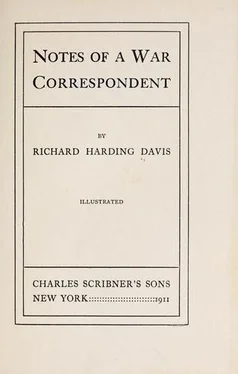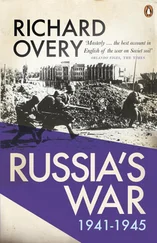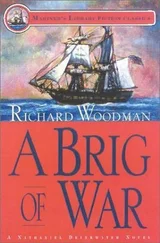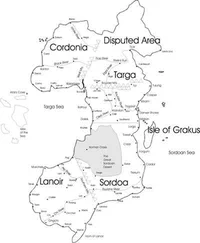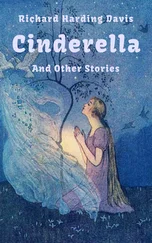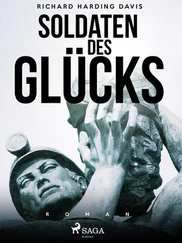Richard Davis - Notes of a War Correspondent
Здесь есть возможность читать онлайн «Richard Davis - Notes of a War Correspondent» весь текст электронной книги совершенно бесплатно (целиком полную версию без сокращений). В некоторых случаях можно слушать аудио, скачать через торрент в формате fb2 и присутствует краткое содержание. Город: New York, Год выпуска: 1911, Издательство: Charles Scribner’s Sons, Жанр: Публицистика, prose_military, на английском языке. Описание произведения, (предисловие) а так же отзывы посетителей доступны на портале библиотеки ЛибКат.
- Название:Notes of a War Correspondent
- Автор:
- Издательство:Charles Scribner’s Sons
- Жанр:
- Год:1911
- Город:New York
- ISBN:нет данных
- Рейтинг книги:5 / 5. Голосов: 1
-
Избранное:Добавить в избранное
- Отзывы:
-
Ваша оценка:
- 100
- 1
- 2
- 3
- 4
- 5
Notes of a War Correspondent: краткое содержание, описание и аннотация
Предлагаем к чтению аннотацию, описание, краткое содержание или предисловие (зависит от того, что написал сам автор книги «Notes of a War Correspondent»). Если вы не нашли необходимую информацию о книге — напишите в комментариях, мы постараемся отыскать её.
Summary by Neeru Iyer
Notes of a War Correspondent — читать онлайн бесплатно полную книгу (весь текст) целиком
Ниже представлен текст книги, разбитый по страницам. Система сохранения места последней прочитанной страницы, позволяет с удобством читать онлайн бесплатно книгу «Notes of a War Correspondent», без необходимости каждый раз заново искать на чём Вы остановились. Поставьте закладку, и сможете в любой момент перейти на страницу, на которой закончили чтение.
Интервал:
Закладка:
The force that waited at the drift by Cronje’s farm as it lay spread out on both sides of the river looked like a gathering of Wisconsin lumbermen, of Adirondack guides and hunters halted at Paul Smith’s, like a Methodist camp-meeting limited entirely to men.
The eye sought in vain for rows of tents, for the horses at the picket line, for the flags that marked the head-quarters, the commissariat, the field telegraph, the field post-office, the A. S. C., the R. M. A. C., the C. O., and all the other combinations of letters of the military alphabet.
I remembered that great army of General Buller’s as I saw it stretching out over the basin of the Tugela, like the children of Israel in number, like Tammany Hall in organization and discipline, with not a tent-pin missing; with hospitals as complete as those established for a hundred years in the heart of London; with search-lights, heliographs, war balloons, Roentgen rays, pontoon bridges, telegraph wagons, and trenching tools, farriers with anvils, major-generals, mapmakers, “gallopers,” intelligence departments, even biographs and press-censors; every kind of thing and every kind of man that goes to make up a British army corps. I knew that seven miles from us just such another completely equipped and disciplined column was advancing to the opposite bank of the Sand River.
And opposed to it was this merry company of Boer farmers lying on the grass, toasting pieces of freshly killed ox on the end of a stick, their hobbled ponies foraging for themselves a half-mile away, a thousand men without a tent among them, without a field-glass.
It was a picnic, a pastoral scene, not a scene of war. On the hills overlooking the drift were the guns, but down along the banks the burghers were sitting in circles singing the evening hymns, many of them sung to the tunes familiar in the service of the Episcopal Church, so that it sounded like a Sunday evening in the country at home. At the drift other burghers were watering the oxen, bathing and washing in the cold river; around the camp-fires others were smoking luxuriously, with their saddles for pillows. The evening breeze brought the sweet smell of burning wood, a haze of smoke from many fires, the lazy hum of hundreds of voices rising in the open air, the neighing of many horses, and the swift soothing rush of the river.
When morning came to Cronje’s farm it brought with it no warning nor sign of battle. We began to believe that the British army was an invention of the enemy’s. So we cooked bacon and fed the doves, and smoked on the veranda, moving our chairs around it with the sun, and argued as to whether we should stay where we were or go on to the bridge. At noon it was evident there would be no fight at the drift that day, so we started along the bank of the river, with the idea of reaching the bridge before nightfall. The trail lay on the English side of the river, so that we were in constant concern lest our white-hooded Cape cart would be seen by some of their scouts and we would be taken prisoners and forced to travel all the way back to Cape Town. We saw many herds of deer, but no scouts or lancers, and, such being the effect of many kopjes, lost all ideas as to where we were. We knew we were bearing steadily south toward Lord Roberts, who as we later learned, was then some three miles distant.
About two o’clock his guns opened on our left, so we at least knew that we were still on the wrong side of the river and that we must be between the Boer and the English artillery. Except for that, our knowledge of our geographical position was a blank, and we accordingly “out-spanned” and cooked more bacon. “Outspanning” is unharnessing the ponies and mules and turning them out graze, and takes three minutes—“inspanning” is trying to catch them again, and takes from three to five hours.
We started back over the trail over which we had come, and just at sunset saw a man appear from behind a rock and disappear again. Whether he was Boer or Briton I could not tell, but while I was examining the rock with my glasses two Boers came galloping forward and ordered me to “hands up.” To sit with both arms in the air is an extremely ignominious position, and especially annoying if the pony is restless, so I compromised by waving my whip as high as I could reach with one hand, and still held in the horse with the other. The third man from behind the rock rode up at the same time. They said they had watched us coming from the English lines, and that we were prisoners. We assured them that for us nothing could be more satisfactory, because we now knew where we were, and because they had probably saved us a week’s trip to Cape Town. They examined and approved of our credentials, and showed us the proper trail which we managed to follow until they had disappeared, when the trail disappeared also, and we were again lost in what seemed an interminable valley. But just before nightfall the fires of the commando showed in front of us and we rode into the camp of General Christian De Wet. He told us we could not reach the bridge that night, and showed us a farm-house on a distant kopje where we could find a place to spread our blankets. I was extremely glad to meet him, as he and General Botha are the most able and brave of the Boer generals. He was big, manly, and of impressive size, and, although he speaks English, he dictated to his adjutant many long and Old-World compliments to the Greater Republic across the seas.
We found the people in the farm-house on the distant kopje quite hysterical over the near presence of the British, and the entire place in such an uproar that we slept out in the veldt. In the morning we were awakened by the sound of the Vickar-Maxim or the “pom-pom” as the English call it, or “bomb-Maxim” as the Boers call it. By any name it was a remarkable gun and the most demoralizing of any of the smaller pieces which have been used in this campaign. One of its values is that its projectiles throw up sufficient dust to enable the gunner to tell exactly where they strike, and within a few seconds he is able to alter the range accordingly. In this way it is its own range-finder. Its bark is almost as dangerous as its bite, for its reports have a brisk, insolent sound like a postman’s knock, or a cooper hammering rapidly on an empty keg, and there is an unexplainable mocking sound to the reports, as though the gun were laughing at you. The English Tommies used to call it very aptly the “hyena gun.” I found it much less offensive from the rear than when I was with the British, and in front of it.
From the top of a kopje we saw that the battle had at last begun and that the bridge was the objective point. The English came up in great lines and blocks and from so far away and in such close order that at first in spite of the khaki they looked as though they wore uniforms of blue. They advanced steadily, and two hours later when we had ridden to a kopje still nearer the bridge, they were apparently in the same formation as when we had first seen them, only now farms that had lain far in their rear were overrun by them and they encompassed the whole basin. An army of twenty-five thousand men advancing in full view across a great plain appeals to you as something entirely lacking in the human element. You do not think of it as a collection of very tired, dusty, and perspiring men with aching legs and parched lips, but as an unnatural phenomenon, or a gigantic monster which wipes out a railway station, a cornfield, and a village with a single clutch of one of its tentacles. You would as soon attribute human qualities to a plague, a tidal wave, or a slowly slipping landslide. One of the tentacles composed of six thousand horse had detached itself and crossed the river below the bridge, where it was creeping up on Botha’s right. We could see the burghers galloping before it toward Ventersburg. At the bridge General Botha and President Steyn stood in the open road and with uplifted arms waved the Boers back, calling upon them to stand. But the burghers only shook their heads and with averted eyes grimly and silently rode by them on the other side. They knew they were flanked, they knew the men in the moving mass in front of them were in the proportion of nine to one.
Читать дальшеИнтервал:
Закладка:
Похожие книги на «Notes of a War Correspondent»
Представляем Вашему вниманию похожие книги на «Notes of a War Correspondent» списком для выбора. Мы отобрали схожую по названию и смыслу литературу в надежде предоставить читателям больше вариантов отыскать новые, интересные, ещё непрочитанные произведения.
Обсуждение, отзывы о книге «Notes of a War Correspondent» и просто собственные мнения читателей. Оставьте ваши комментарии, напишите, что Вы думаете о произведении, его смысле или главных героях. Укажите что конкретно понравилось, а что нет, и почему Вы так считаете.
